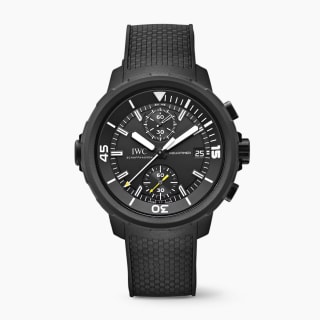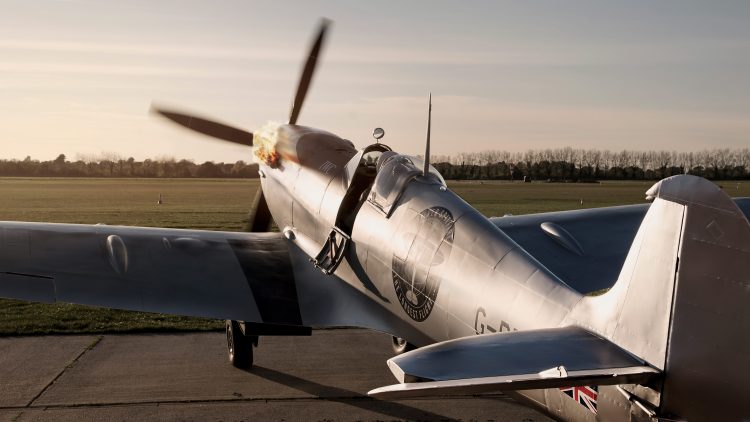IWC Schaffhausen
The Spitfire embarks on its longest journey
STEVE BOULTBEE BROOKS AND MATT JONES PLAN TO CIRCUMNAVIGATE THE GLOBE WITH THE “SILVER SPITFIRE” AND WRITE AVIATION HISTORY.
The Spitfire was designed as a fighter plane for the Royal Air Force. It wrote history during the Battle of Britain. But thanks to its characteristic, elliptically shaped wings, it is also a genuine design icon. It is the extraordinary story of the engineering behind the Spitfire that fascinates Steve Boultbee Brooks and Matt Jones. In the Boultbee Flight Academy, the two British pilots have founded the only recognized Spitfire flying school in the world. Now, for the first time in aviation history, the two British pilots plan to fly around the globe in a Spitfire.
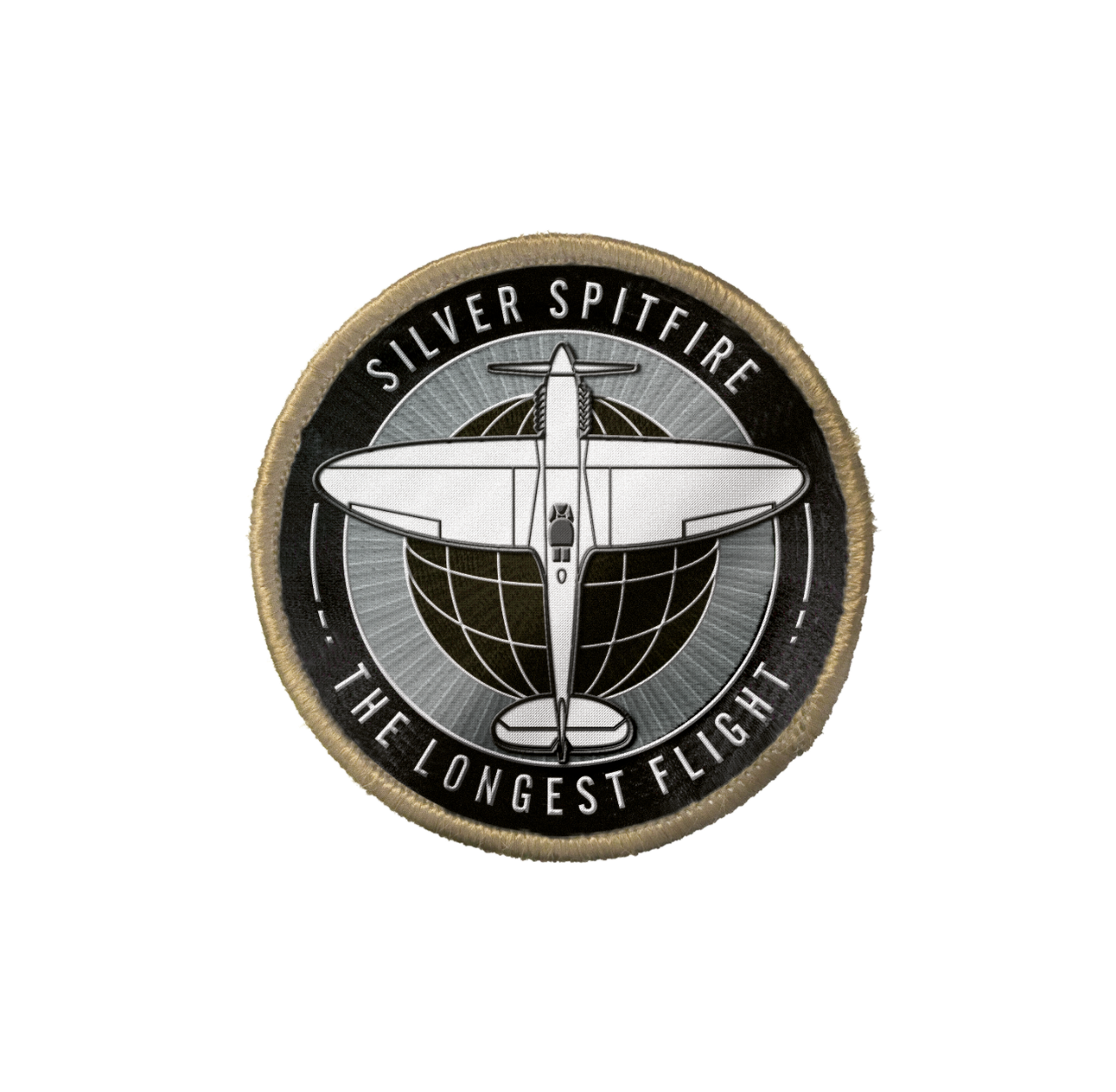
They are taking the “Silver Spitfire” on its longest flight ever. The aircraft has been painstakingly restored over a period of 2 years by 14 specialists. An unusual polishing process has given it a high-gloss finish whilst preserving the patina that history has left behind on the metal fuselage of the plane, built in 1943. In a sense, the “Silver Spitfire” has become a reflection of its time. Never has the iconic silhouette of the aircraft, which is normally painted, been made so starkly visible.
The big adventure gets under way next summer at Goodwood, in the south of England. To cover the more than 43,000 kilometres around the world, they will need to divide the flight into about 150 legs. In the course of its journey, the Spitfire will have to cope with a gamut of extreme conditions. The cold of the Russian steppes, the humid heat of tropical Asia, severe weather over the ocean and sandstorms in the desert will place enormous demands not only on the materials but also on the pilots and ground crew.
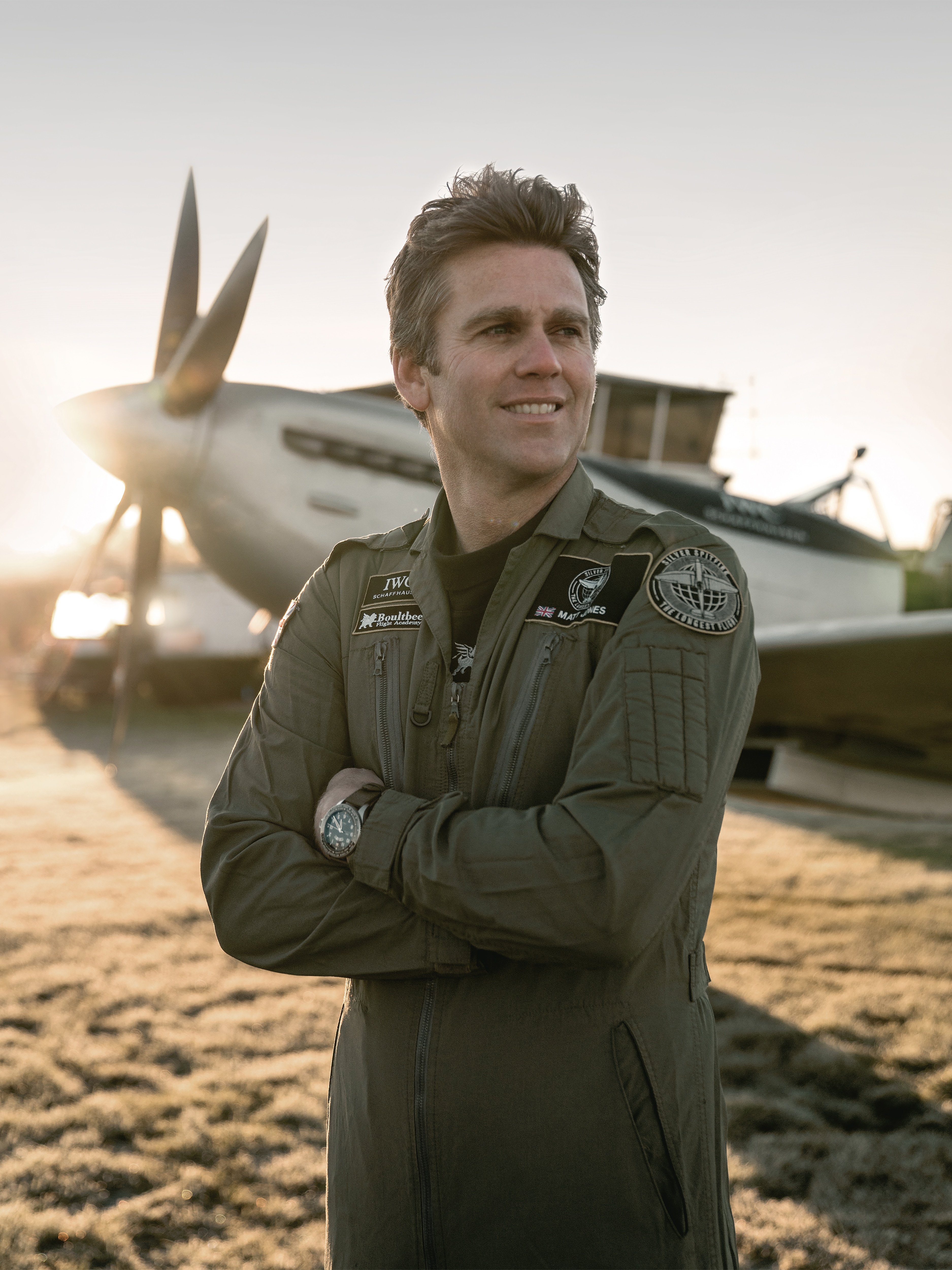

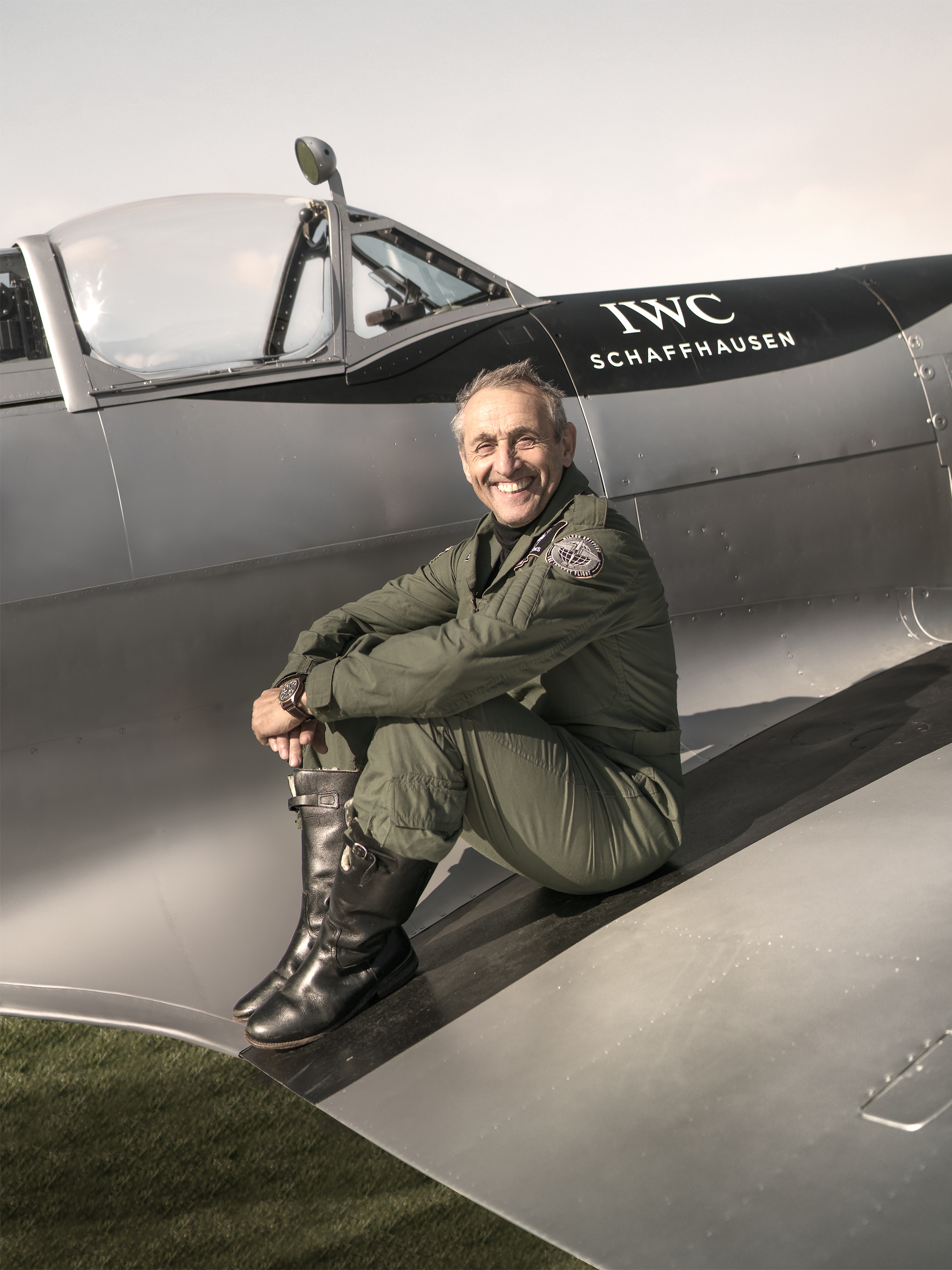
Boultbee Brooks and Jones tracked down the aircraft, which will set off on its flight around the world next August, in a museum. It was built in 1943 in Castle Bromwich and made more than 50 flights during its term of service. The aircraft was stripped down to its individual parts for restoration. Each of the around 80,000 rivets was carefully examined, cleaned and, if necessary, replaced. Every part of the “Silver Spitfire” was polished to make its chrome design gleam. A special polishing procedure was used to create a mirror-bright finish, while retaining the aircraft’s original patina. The sculptural beauty of the Spitfire design will therefore be seen as it has never been seen before. The Spitfire will become a “reflection of the time” as it reflects its own eventful history. Around 14 specialists worked on the intensive restoration process for more than two years.
The flight route has not yet been finalised. The details will depend on the weather conditions. However, it will definitely fly from Goodwood in the south of England over Iceland to Canada and then into the USA to allow the crew to take advantage of the comparatively mild weather conditions of the Arctic. It will then fly over Alaska and Russia to Japan and South East Asia before the pilots head towards India. The “Silver Spitfire” will then return to Europe via the Middle East.
Just like the Spitfire, the IWC watch collection of the same name also perfectly combines form and function. The design is inspired by the iconic Mark 11 navigation watch. To celebrate the unique engineering expertise of the Spitfire designers, all watches are fitted with IWC-manufactured calibres. A particular highlight of the collection is the Pilot’s Watch Timezoner Spitfire Edition “The Longest Flight” (ref. IW395501). For the first time ever at IWC, it combines the patented Timezoner mechanism with an entirely automatic IWC-manufactured movement and is limited to just 250 watches.
This special edition is dedicated to the “Silver Spitfire – The Longest Flight” project. It has been specially developed for pilots Steve Boultbee Brooks and Matt Jones to coincide with their flight around the world in a Spitfire. The colour scheme of the watch design, with its stainless steel case, its black dial and its green textile strap, is reminiscent of the cockpit of a Spitfire.
The watch can be set to a different time zone by means of a simple rotational movement of the bezel. The hour hand, the 24-hour display and the date rotate automatically at the same time. The 24-hour display has been designed as a rotating disc beneath the dial. This means that the dial moves closer to the front glass, making it easier to read. The newly developed 82760 IWC-manufactured calibre has a Pellaton winding with components made from wear-resistant ceramic and boasts a power reserve of 60 hours.

Pilot’s Watch Timezoner Spitfire Edition “The Longest Flight” (ref. IW395501)
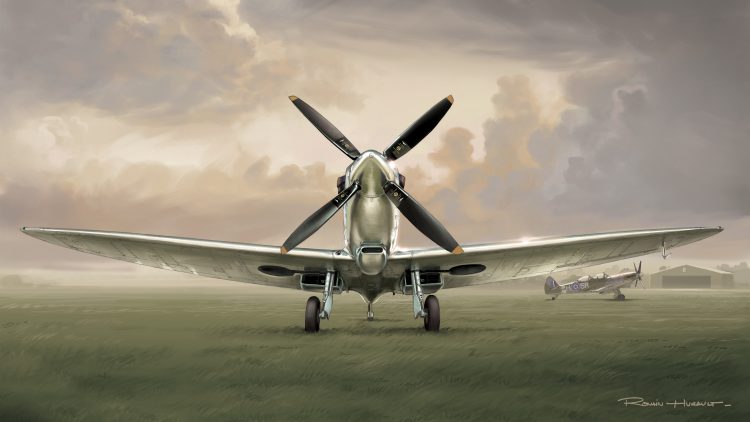
The Silver Spitfire, illustration by Romain Hugault




